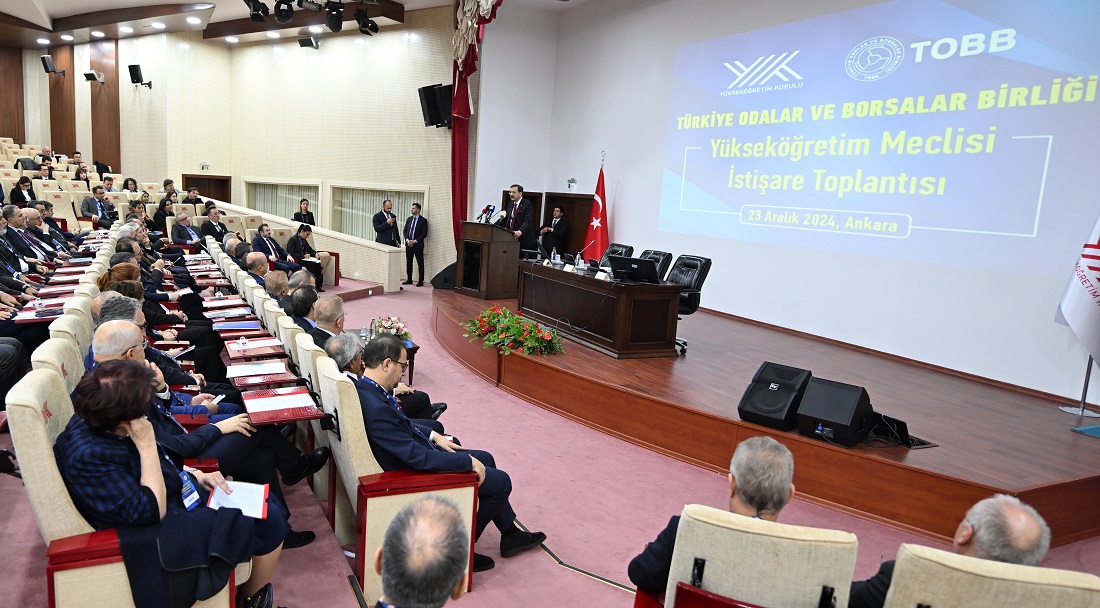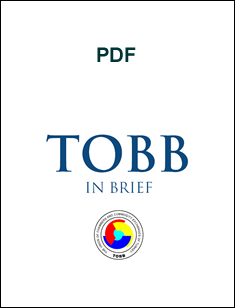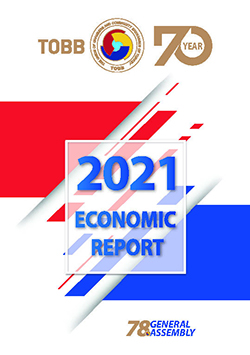Our foundation universities should be supported in every sense

23.12.2024 / Ankara
The President of the Union of Chambers and Commodity Exchanges of Türkiye (TOBB), M. Rifat Hisarcıklıoğlu, said in his speech at the Turkish Higher Education Council Consultation Meeting, “Our aim should be to raise well-equipped people who can keep up with the pace of technological developments, who have the ability to quickly acquire new knowledge and transform this knowledge into added value.”
TOBB Türkiye Higher Education Council Consultation Meeting was held at the Higher Education Council (YÖK) Conference Hall with the participation of Higher Education Council (YÖK) President Prof. Dr. Erol Özvar and representatives of foundation universities.
In his speech, Hisarcıklıoğlu stated that technology, digitalization, artificial intelligence and innovation are becoming more integrated into life every day.
Pointing out that this integration does not only consist of providing technological tools and infrastructure, Hisarcıklıoğlu said, “Our aim should be to train well-equipped people who can keep up with the pace of technological developments, acquire new information quickly and transform this information into added value. If we say ‘We are also in this competition’, we can only do this with a well-equipped workforce and a higher education sector that can provide institutional and quality services to train these people.”
- Achievements of Turkish universities
Explaining that universities in Türkiye have become institutions that have made a name for themselves not only in the country but also in the international arena, Hisarcıklıoğlu said that Turkish universities have achieved significant success according to the world university rankings.
Hisarcıklıoğlu stated that there are 5 universities in the top 500 universities and 11 universities in the top 1,000 universities and continued his words as follows: “Universities increase the technological and scientific power of our country by making important breakthroughs in research and innovation.
In order to ensure a sustainable development in education, our universities need to have a strong structure in terms of both economic and social responsibility. As an important stakeholder of this system, our foundation universities bear a significant part of the public cost and share the responsibility of the state. In this sense, I would like to express that I find it necessary and important to support our foundation universities in every sense.”
- New goal is to establish a “superconductor chip manufacturing house”
Hisarcıklıoğlu reminded that the United Nations declared 2025 as the “International Year of Quantum Science and Technology” and said that they launched Türkiye’s first quantum computer QuanT this year.
Pointing out that Türkiye is one of the 15 countries in the world with this technology, Hisarcıklıoğlu said, “As TOBB ETU and Aselsan, our new goal is to establish a ‘superconductor chip production house’ with the support of our Presidency of Defense Industry. Our foundation universities have the potential to develop all these technologies and realize projects that will revolutionize our industry. As long as we strengthen the relationship between the goals of the private sector and education planning and support our universities.”
Hisarcıklıoğlu stated that in a period of increasing competition both nationally and internationally, universities should work together to achieve a stronger position at the global level.
Emphasizing that these meetings are an important opportunity to address the needs and problems faced by the sector and to develop solutions, Hisarcıklıoğlu said:
“Especially the economic difficulties we have experienced in recent years have also affected the higher education sector. We see that this situation reveals the need for strategic planning. In this process, public and private sector cooperation has become much more important. For the future of our country, we must have a strong education infrastructure, use technology-based innovation processes more effectively, and offer better educational opportunities to our youth.”
Bekir Okan, President of TOBB Türkiye Higher Education Council, stated that the demands for new departments and program substitutions in foundation higher education institutions should be supported, taking into account the closure of secondary education programs, and said, “In order to catch up with the requirements of today’s digital transformation and technological developments and to create employment in this field, new departments and programs in the fields of artificial intelligence, big data and digitalization based on informatics should be prioritized and their opening in foundation higher education institutions should be supported.”
- Insufficient academic staff
In his speech, Higher Education Council (YÖK) President Erol Özvar said, “The insufficient number of academic staff is one of the most important problems facing foundation higher education institutions.”
In his speech, YÖK President Erol Özvar said, “According to the data we have, the insufficient number of academic staff is one of the most important problems facing foundation higher education institutions.”
Stating that YÖK carefully determines the minimum number of academic staff required for each program, Özvar said, “It is important in terms of the quality and sustainability of the education processes that the education and training activities are carried out in a healthy way, and that the competencies and achievements of the relevant program are given to the students by professors from the field.”
Özvar emphasized the importance of the number of lecturers and their areas of expertise in academic programs and said, “The findings that the minimum number of lecturers determined by our Board is not met in some programs, that the courses given by the lecturers are not compatible with their areas of expertise, or that the lecturers working full-time in foundation higher education institutions also have SSI records in other institutions are remarkable data recorded in the records.”
Bekir Okan, President of the Türkiye Higher Education Council of TOBB, expressed the issues they would like to be taken into consideration by YÖK in his speech. Pointing to the importance of internationalizing universities, Okan asked for the tuition fees of international students to be reassessed. Underlining that the requirement of 15 percent scholarship students for each program at the associate degree, undergraduate, master’s degree with thesis and doctorate level should be limited to 10 percent, Bekir Okan said, “The demands of foundation universities for program substitutions should be supported.”
The meeting continued closed to the press after the opening speeches.
Your message has been sent
Thank you |




